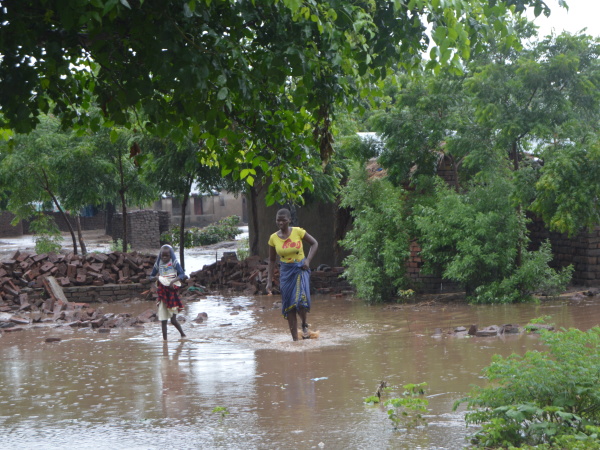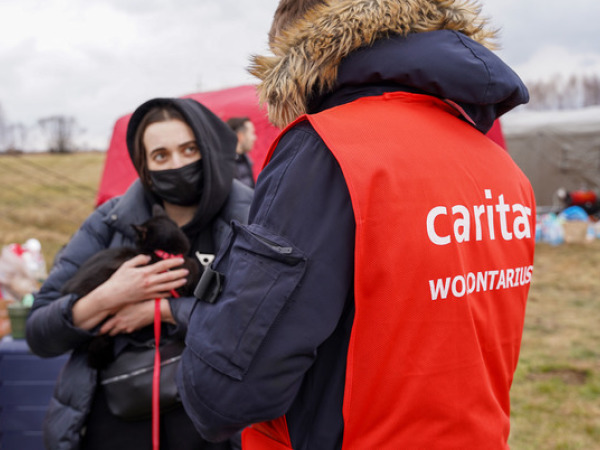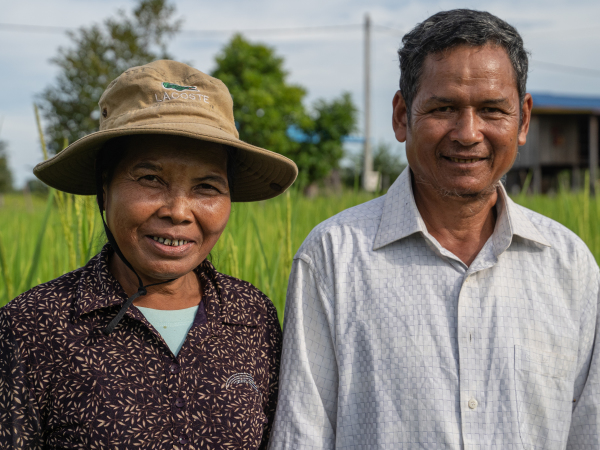Stepping up humanitarian aid in Lebanon
9 October 2020
We are extremely pleased to announce we will be increasing our humanitarian aid work in disaster-stricken Lebanon after receiving over £80,000 in generous donations.
The much-needed funds come after a devastating explosion rocked Beirut on 4th August. The explosion killed over 200 people, injured over 5,000 and destroyed large parts of the city. Around 40,000 buildings were badly damaged, rendering 300,000 people instantly homeless. In addition to this, 70,000 people lost their jobs.
The blast came in the midst of an intense political and economic crisis causing soaring rates of poverty, and at a time when the coronavirus pandemic is also heavily impacting Lebanon.
In the aftermath of the disaster, medical services have been over-run, the government has collapsed, and starvation and the coronavirus are spreading rapidly.
SCIAF, as part of Caritas Internationalis, one of the largest humanitarian networks in the world, is working with Caritas Lebanon to provide emergency supplies such as blankets, cooking kits, hot meals and help with schooling for thousands of families affected by the blast.
The money will also provide rechargeable solar panels, medical assistance and help to restore damaged homes. The humanitarian efforts in particular will focus on households in the extremely poor neighbourhoods of Rmeil and Bourj Hammoud.
 Before the catastrophe, Lebanon was already a country in crisis. Having survived decades of conflict, it then provided sanctuary to more than 1.5 million refugees who fled from Syria and other conflicts in the region. Refugees now make up more than a quarter of the Lebanese population and were already stretching the country’s schools, medical services and social services to breaking point. The explosion and coronavirus have made a difficult situation even worse.
Before the catastrophe, Lebanon was already a country in crisis. Having survived decades of conflict, it then provided sanctuary to more than 1.5 million refugees who fled from Syria and other conflicts in the region. Refugees now make up more than a quarter of the Lebanese population and were already stretching the country’s schools, medical services and social services to breaking point. The explosion and coronavirus have made a difficult situation even worse.

The Lebanese economy is in freefall and the destruction of Beirut’s port is also a major concern as the country relies on imports for the majority of its food needs. The UN has warned that Lebanon could soon face major food shortages.
We are extremely grateful for the continual support of generous supporters, especially at this difficult time. These vital funds will allow us to reach some of the poorest and most vulnerable families and show the people of Lebanon that they are not alone.

The Scottish Government has given grant funding to SCIAF to help communities recover from the damages caused by the climate crisis.

SCIAF's Ukraine appeal has received a donation from the Scottish Government. This will go directly towards helping Ukrainians.

Thanks to your support of our WEE BOX UK Aid Match appeal, the lives of more than 46,000 people have been transformed in Cambodia.